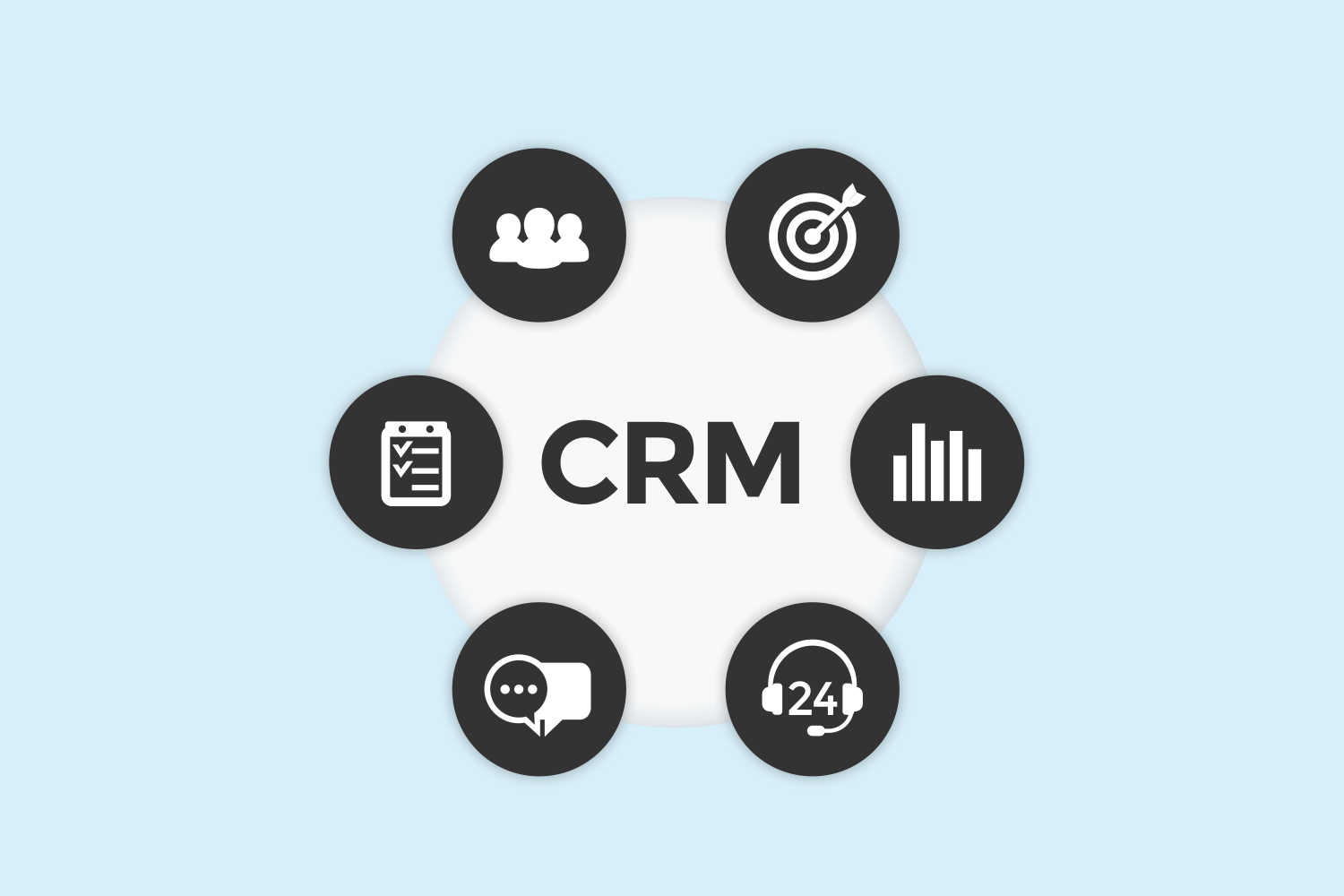SUMMARY
The customer relationship management (CRM) is a key strategy for companies that want to build strong, lasting relationships with their customers. In a customer care context, CRM focuses on managing customer interactions, optimizing the user experience and ensuring that each interaction is meaningful and productive. As companies become more competitive in the marketplace, they must adopt effective CRM systems to meet customer needs and improve customer loyalty.
Definition of customer relationship management
But what exactly is meant when we talk about CRM applied to customer service? It is an integrated approach that combines strategies, processes, and technologies with the goal of managing, analyzing, and improving all interactions with customers throughout the entire lifecycle of the relationship.
In the specific context of customer care, CRM goes far beyond simple management software. It represents an operational philosophy that puts the customer at the center of all business activities.
Importance of a CRM system in the world of customer care
An effective customer relationship management system in customer care allows fragmented data to be transformed into useful and “actionable” information, enabling operators to provide personalized and proactive service. This results not only in more satisfied customers, but also in more opportunities for cross-selling and up-selling, while simultaneously reducing operating costs.
- Personalization: a CRM enables the collection of customer information, facilitating personalized offers and targeted communications.
- Operational efficiency: by automating many of the interactions and processes, CRM allows operators to focus on value-added activities.
- Data analysis: CRM systems provide analytical tools that help identify trends and customer behaviors, improving business strategies.
The 4 types of CRMs that currently exist
But not all CRMs are the same. There are four main types, each with specific features and functionality designed to meet different organizational needs.
Operational CRM
Operational CRM focuses on automating and optimizing front-office processes that involve direct interaction with customers. It is the most common type of CRM and is the foundation of any customer relationship management strategy.
A company uses an operational CRM to track all interactions with potential customers, from the first visit to the Web site to the conclusion of the sale, automating the sending of emails and scheduling of appointments.
Analytical CRM
Analytical CRM is concerned with analyzing data collected by operational CRM to derive meaningful insights into customer behavior and market trends. This type of CRM transforms raw data into useful information for making strategic decisions.
For example, an e-commerce company uses analytical CRM to identify which products are often purchased together, allowing it to create customized bundles and effective recommendations.
Collaborative CRM
A Collaborative CRM is focused on improving communication and collaboration between different departments within the company and with external partners. The goal is to share customer information efficiently to provide a more cohesive and personalized experience.
For example, in B2B, a collaborative CRM is used to enable sales, technical support, and administrative teams to access the same customer information, ensuring that each interaction is informed and contextualized.
Strategic CRM
Strategic CRM uses the information obtained about one’s customers to develop long-term strategies that improve customer acquisition, retention, and profitability. This type of CRM aims to create a customer-centric corporate culture.
For example, in finance, strategic CRM can be used to identify the most profitable customers and develop customized loyalty programs that increase their retention and value over time.
Integration of the four types
It is important to note that these four types of CRM are not mutually exclusive. On the contrary, a complete and effective CRM system should incorporate elements of all four categories. Most modern CRM solutions offer functionality that covers multiple types, allowing companies to:
- Collect and manage customer data (Operational)
- Analyze this data to derive insights (Analytical)
- Sharing this information across departments (Collaborative)
- Use this knowledge to develop long-term business strategies (Strategic)
Evolving CRM with Customer Experience
The evolution of CRM has followed hand in hand with the transformation of consumer expectations. Whereas initially the focus was primarily on basic information management and sales tracking, today modern CRM systems focus on the holistic customer experience.
Modern customers expect immediate, personalized, and consistent responses across all communication channels. They no longer tolerate having to repeat the same information over and over again or receiving standardized responses that do not take into account their history with the company. For this reason, CRM systems have evolved to integrate predictive analytics, artificial intelligence, and intelligent automation, enabling them to anticipate customer needs before they are even expressed.
Measurable benefits of an advanced CRM
Implementing an advanced CRM system in customer care brings concrete and measurable benefits:
- Reduction in average request handling time by up to 35 percent
- Increased customer satisfaction by up to 25%
- Increased first-contact resolution rate by up to 30 percent
- Improved operator productivity by up to 40 percent
These numbers underscore the importance of a strategic approach to CRM, which must be conceived as a long-term investment and not just an operating cost.
INGO: the ideal partner for an effective CRM system
INGO presents itself as a strategic partner for companies wishing to implement an effective customer relationship management system. With extensive experience in customer care and innovative technology solutions, INGO can support companies in managing customer relationships, optimizing processes and improving efficiency.
INGO’s expertise and personalized approach
First of all INGO offers customized solutions that meet the specific needs of each company. Our platforms are designed to integrate easily with existing CRM systems, ensuring scalability and efficiency.
Continuous innovation
INGO is constantly committed to innovation. Our omnichannel platform and the automation systems evolve to incorporate the latest technologies and market trends, ensuring that companies are always at the forefront of customer relationship management.
Analysis and dashboards for greater clarity
With customizable data analysis systems and dashboards, companies can independently verify many of the metrics they will need for more detailed insights with respect to habits, demands, and ways of solving problems related to their customers. All of this will allow them to design tailored solutions that integrate with existing systems.
Long-term partnership
Choose INGO means establishing a lasting partnership based on trust and shared goals. INGO is committed to:
- Provide ongoing and proactive support
- Propose updates and improvements in line with market developments
- Sharing industry know-how and best practices
- Always be available to take on new challenges together
Don’t wait for your competitors to deliver an excellent customer experience: contact INGO today and discover how to transform your customer relationship management.
Contact us
Find out more about our CX services
INGO, thanks to multichannel and technological innovations, is able to build specific projects for each company, following the process from the initial analysis phase to the implementation of integrated, scalable and modular omnichannel strategies. For over 20 years, Made in Italy at the service of the customer experience.
blog



